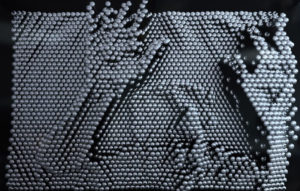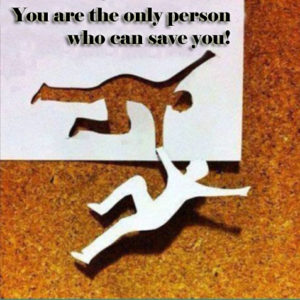For anyone who has ever been involved with a narcissist, we know all too well the seemingly unyielding pain and anguish that goes hand-in-hand with being a survivor of narcissistic abuse. The initial love bombing, and subsequent discard and hovering phases, leave our head and heart spinning, reeling from the destructive dynamic that we, as empaths, have been programmed by our  narcissist to confuse with love. We see this longing for our broken relationship to be put right, as unrequited love. And the time spent apart from our narcissist pedantically plods onward at a progressively painful pace, with these feelings of wanting and longing only growing deeper and more excruciating to the point that we find ourselves fixating on resolving whatever conflict that exists between us – the empath and our narcissist – at whatever cost, so we can once again bask in the dim glow of the narcissist’s perverted interpretation of love which they have conditioned us to accept as healthy and desirable. My beautiful, this isn’t love. It’s a twisted bastardization of love. So why do we miss it? Why do we miss someone incapable of truly loving? Why do we long for a broken person’s broken love?
narcissist to confuse with love. We see this longing for our broken relationship to be put right, as unrequited love. And the time spent apart from our narcissist pedantically plods onward at a progressively painful pace, with these feelings of wanting and longing only growing deeper and more excruciating to the point that we find ourselves fixating on resolving whatever conflict that exists between us – the empath and our narcissist – at whatever cost, so we can once again bask in the dim glow of the narcissist’s perverted interpretation of love which they have conditioned us to accept as healthy and desirable. My beautiful, this isn’t love. It’s a twisted bastardization of love. So why do we miss it? Why do we miss someone incapable of truly loving? Why do we long for a broken person’s broken love?
Longing is a horrible place to be – emotionally, mentally, psychologically – especially where there is no sense of connection or connectivity with the person for whom you long. It just plain sucks. Today, yesterday; what longing with tears for you. As an empath, and unlike the narcissist, you have genuine and profound amorous feelings of love and commitment that you long to give and reciprocally share with your narcissist. If only they could see this. If only they could look into your heart and witness, firsthand, the unconditional love you feel for them. You must understand, what you ask is truly impossible. The narcissist is simply incapable of feeling any true sense of devotion, commitment, sacrifice; love for anyone but themselves. The only reason the narcissist surrounds themselves with others is to have an endless  supply of adulation and admiration – external validation – to make them feel better about themselves. It’s remarkably akin to a junkie’s need for a fix from their drug of choice. Only the narcissist’s drug is an ego boost in the form of (most usually) flattery of a flirtatious, perhaps even overtly sexual nature. This is why the narcissist generally has a harem – one male (narcissist) to many females – or a reverse harem – one female (narcissist) to many males – so the narcissist never experiences a shortage of supply for their next ego boost, their next “fix.”
supply of adulation and admiration – external validation – to make them feel better about themselves. It’s remarkably akin to a junkie’s need for a fix from their drug of choice. Only the narcissist’s drug is an ego boost in the form of (most usually) flattery of a flirtatious, perhaps even overtly sexual nature. This is why the narcissist generally has a harem – one male (narcissist) to many females – or a reverse harem – one female (narcissist) to many males – so the narcissist never experiences a shortage of supply for their next ego boost, their next “fix.”
The result of this longing has a snowball effect. The initial longing, when unfulfilled for the empath by the narcissist, leaves the empath feeling a lack of connection – something we, as empaths, not only strive for, but long to attain, maintain and share. When the empath is initially denied this connection with their narcissist, the feeling of disconnect and fear of losing someone and something invaluable begins to take on a downward-spiraling demonic life of its own. And with each subsequent incident, the narcissist withdraws further  and further away. The empath’s realization of this very real disconnect, and the subsequent burden of unrelenting anguish they are left to endure alone, grows exponentially to the point of becoming paralyzing. And until this longing is quelled by the narcissist, in the form of a reciprocal connection no matter how fleeting it may be, as an empath, ours becomes a very cold and dark, black and white world devoid of any true happiness or joy. It’s a truly debilitating feeling where, as an empath, you see very little, if any, true happiness in anything else. Hobbies, past times, extracurricular activities are all now devoid of any true pleasure because they all center(ed) around, and gravitate back to, our narcissist. We’ve unwittingly lost our identity in the relationship and any joy for living in our narcissist. They truly do complete us.
and further away. The empath’s realization of this very real disconnect, and the subsequent burden of unrelenting anguish they are left to endure alone, grows exponentially to the point of becoming paralyzing. And until this longing is quelled by the narcissist, in the form of a reciprocal connection no matter how fleeting it may be, as an empath, ours becomes a very cold and dark, black and white world devoid of any true happiness or joy. It’s a truly debilitating feeling where, as an empath, you see very little, if any, true happiness in anything else. Hobbies, past times, extracurricular activities are all now devoid of any true pleasure because they all center(ed) around, and gravitate back to, our narcissist. We’ve unwittingly lost our identity in the relationship and any joy for living in our narcissist. They truly do complete us.
On that rare chance the narcissist decides to reciprocate, which does happen from time to time (after all, they have to keep you hooked as their primary source of narcissistic supply by periodically giving you the drug you need – them), therefore, they will reciprocate with a very small portion of the affection and attention you afforded them, and you once again find yourself on top of the world! You have gotten your high from your drug of choice – the narcissist – and there is no greater feeling in this world, at least not for you. The grim reality that we, as empaths, jointly fail to realize and is even harder to accept, is that the narcissist knows full well what they are doing to us. And as time and the relationship progresses, if you can call it that, the narcissist begins strategically spacing those moments where they show us a minuscule vestige of the love they once gave us in spades, albeit in the initial love bombing phase or the subsequent hoovering phase/s, further and further apart to both increase the empath’s suffering and dependence on the narcissist as well as continuing to reduce the relationship expectations placed upon the narcissist.  As we’ve already established, the one with the most power in any relationship is usually the one least invested. But we keep giving them second chance after second chance. We must realize, in giving someone a second chance, especially one after another, it’s like giving them another bullet because they missed us the first time.
As we’ve already established, the one with the most power in any relationship is usually the one least invested. But we keep giving them second chance after second chance. We must realize, in giving someone a second chance, especially one after another, it’s like giving them another bullet because they missed us the first time.
It’s this type of self-serving narcissistic behavior that only fuels the empath’s insecurities and, many times, starts them on their journey of other destructive pursuits – heavy smoking or drinking, undereating or overeating, perhaps even risky sexual behavior with strangers – all in an effort to fill the ever-deepening void and emptiness purposefully created by the narcissist. And the narcissist’s childish refusal to give healthy closure, most usually as a result of executing the “silent treatment,” only exacerbates an already precarious and dangerous scenario. This deep-rooted and profound feeling of loss and longing takes place on an energy level. The narcissist, operating as an  emotional vampire, ever so slowly drains the very essence, the life force, of their empath to the point that, once completely spent, or as I prefer to call it, “emotionally bankrupt,” the narcissist will simply move on to their next victim, with their current primary source of narcissistic supply (you and me) left holding the proverbial relationship bag wondering what the hell just happened. Everything has a last time and this was ours with our narcissist.
emotional vampire, ever so slowly drains the very essence, the life force, of their empath to the point that, once completely spent, or as I prefer to call it, “emotionally bankrupt,” the narcissist will simply move on to their next victim, with their current primary source of narcissistic supply (you and me) left holding the proverbial relationship bag wondering what the hell just happened. Everything has a last time and this was ours with our narcissist.
The inescapable reality is that a narcissist doesn’t break your heart. A narcissist breaks your spirit, fractures and crushes your soul, this is why it takes so long to heal from narcissistic abuse…if you can call it healing. Believe me, I have, so many times, been inexorably tempted to call or text my narcissist, even though it’s been almost a year since I saw her last, just to ask, “Why?!” I just wanted answers, closure, something to give me a starting point to begin my healing. But every time I picked up my phone, I had to instead remind myself of this one simple fact: the only true loyalty a narcissist knows is to themselves. The narcissist does not  operate on any level of compassion or understanding like a mentally and emotionally healthy individual. So our only hope for healing comes from within us, the broken and emotionally bankrupt empath. This is probably the hardest part of the healing process with which we must contend. “Is there balm in Gilead?” Our healing absolutely must come from within us. We cannot, nor should we, rely on someone else to heal us – especially our narcissist. What broke you cannot also be what heals you. It just doesn’t work like that. Even the compassion of the wicked is cruel.
operate on any level of compassion or understanding like a mentally and emotionally healthy individual. So our only hope for healing comes from within us, the broken and emotionally bankrupt empath. This is probably the hardest part of the healing process with which we must contend. “Is there balm in Gilead?” Our healing absolutely must come from within us. We cannot, nor should we, rely on someone else to heal us – especially our narcissist. What broke you cannot also be what heals you. It just doesn’t work like that. Even the compassion of the wicked is cruel.
We have seen, firsthand, the resultant trainwreck when we allow someone else to  become our source of healing and strength. And while this self-reliant healing may sound almost impossible, believe me, you do have the strength and power within you to heal both your broken spirit and your broken heart. Believe in your own power. Your narcissist did. So can you.
become our source of healing and strength. And while this self-reliant healing may sound almost impossible, believe me, you do have the strength and power within you to heal both your broken spirit and your broken heart. Believe in your own power. Your narcissist did. So can you.


Feel free to comment below! ?